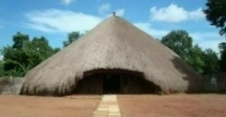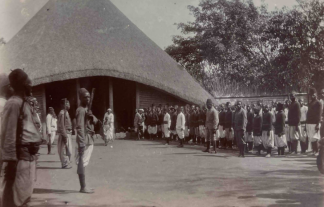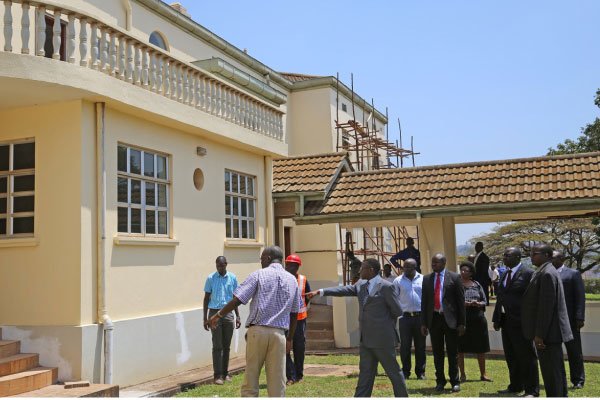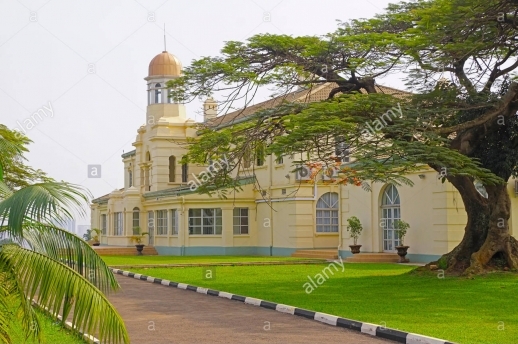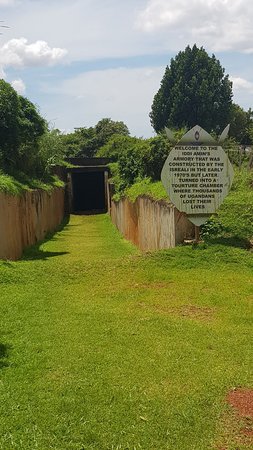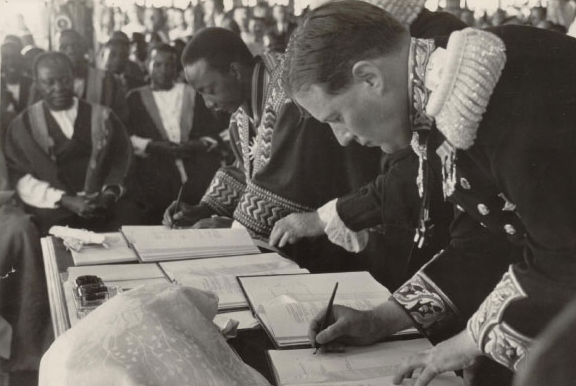The beautiful landscape of Uganda where oil must be excavated at once for financial profits.
One-and-half years since Uganda and Tanzania signed an intergovernmental agreement for the East African Crude Oil pipeline – the start of what was supposed to be a smooth process to signing off other crucial documents such as the Host Agreement and the Final Investment Decision - the three main oil companies in Uganda say many of the critical numbers that should inform their decision of whether to put money on the table don’t make much business sense, writes JEFF MBANGA.
The oil companies – Total E&P, Cnooc and Tullow Oil - want a revision of the terms they had earlier agreed upon. Their most interesting demand is for government to allocate all the available crude oil resources to the pipeline at the expense of a delay in building the oil refinery. As expected, government has balked at such a proposal.
Due to this deadlock, Uganda’s oil industry is experiencing yet another bout of investor fatigue, with the patience of many businesses being stretched to the limit.
According to a secret cabinet memo prepared recently by the ministry of Energy and Mineral Development, a copy of which The Observer has, one of the biggest bones of contention is the tariff that the companies are expected to charge for the transportation of the crude. Companies charge a tariff per barrel of oil in order to recoup their investments.
More than a year ago when the three oil companies and government negotiated for the construction of the crude oil pipeline, it was agreed that the tariff would be capped at $12.2 per barrel for the 25 years that project would be in place. There was a provision that the tariff would fluctuate downwards but not breach the $12.2 per barrel cap.
The tariff is supposed to factor in four main items: the oil resources moving through the pipeline, the capital expenditure, the operating expenditure, and the return on investment.
However, it has emerged that in May this year, the oil companies had a change of mind over this model.
“The business structure and assumptions of the pipeline project then supported this tariff. These key assumptions included: a one-period tariff structure for the entire life of the project of 25 years, ship and pay revenue mechanism, fluctuating tariff capped at $12.2 per barrel, and a pipeline throughput of 866 million barrels after the right of first call on volumes to the refinery has been met,” reads the cabinet memo.
These assumptions, it has now come to light, no longer appeal to the oil companies. The companies now don’t just want all the available crude oil resources but a higher tariff too.
“The revised business model, proposed by the upstream oil companies for the pipeline project in May 2018, has changed the earlier assumptions that underpinned the development of the project,” the ministry of energy points out, adding: “Some of the revised proposals include the allocation of all the available resources of 1.046 billion barrels of crude oil to the pipeline project.”
The figure of 1.046 billion throws up another question: what happened to the 1.7 billion barrels of recoverable oil that government has long touted?
Anyway, that is not all. The ministry of Energy says that the oil companies have proposed a revised business model that “also introduces a new tariff methodology that requires the targeted return on all capital investments to be recovered within the first 10 years. After the first 10 years when the investment and the return have been recouped, the upstream oil companies propose a tariff methodology that recovers all the costs incurred in a particular year in that same year, with a profit element of 10 per cent.”
The oil companies’ targeted rate of return is set at 10 per cent, which translates into a return on equity of 16 per cent. These figures, according to the ministry of Energy, are way too high, and has opposed them. Government says the return on investment should not exceed seven per cent.
So, what if government rebuffs this particular demand from the oil companies over the tariff and sticks to putting up its oil refinery with a capacity of 60,000 barrels of oil per day, what then? The oil companies say this scenario leaves them demanding for a higher tariff.
The companies argue: “Using the proposed revised business model, an allocation of 60,000 barrels of oil to the refinery in accordance with the 2014 MOU and the remaining volumes to the pipeline, results into a tariff of over $16 per barrel for the first 10 years. In this case, the pipeline project is only viable for 13 years, beyond which the tariff reaches significantly high non-commercial levels.”
There are a number of viewpoints to interpret the oil companies’ decision to adjust what they had earlier agreed on. On one hand, this whole back and forth points to a growing fear that has for at least eight year engulfed Uganda’s oil industry: oil companies are worried about policy changes that create an unpredictable environment.
For example, some oil companies have over the years been left uncomfortable by the amendments to Uganda’s income tax laws. Tullow Oil has over the last two years struggled to receive government approval for the sale of 21 per cent of its Uganda interests to Total E&P and Cnooc partly due to a difference in interpretation of tax laws.
Then earlier this year, a Statutory Instrument – a policy tool - that sought to give Uganda’s government more power to regulate what private investors spent in the oil midstream industry, and how much costs they could recover, rubbed the oil companies the wrong way.
The instrument, which Irene Muloni, the minister of Energy and Mineral Development, issued around June this year, was later withdrawn after Total E&P, Cnooc and Tullow Oil mounted pressure against the policy.
On the other hand, the whole deadlock over the oil resources and the tariff for the pipeline shows the kind of oil politics that Uganda faces. Uganda, fighting to claim its place on the high table of Africa’s big oil producers, faces a daunting task of getting a number of stubborn oil companies to play by the rules the country has set for its oil industry.
Dennis Kamurasi, the vice chairman of the Association of Uganda Oil and Gas Service Providers, says either way, Uganda’s oil industry will take off.
“The project has gone too far not to take off,” he told us. “Agreements have been signed, and a lot of resources have been committed. But there is a lot of anxiety among investors [over the delays]. But like in any other business, there are many variables that are beyond your control. What I would advise is for investors to tighten their belts.”
If there is a group that should tighten their belts, it is the government officials pushing for the oil refinery. According to the memo, “upstream oil companies have recently proposed an alternative allocation mechanism that requires a reduction in the refinery capacity to 30,000 barrels per day and a delay in the refinery commission date to 2026.”
The government maintains that “its position is that a refinery of 60,000 barrel per day capacity is developed given the fact that the projected demand for petroleum products in Uganda and the neighbouring countries will exceed 60,000 barrels per day by the time the refinery is commissioned in 2023.
Uganda’s demand for petroleum products is currently at 36,000 barrels oil per day and is expected to grow at nine per cent annually over the short to medium term.
To put all these disagreements to rest, President Yoweri Museveni has called for a meeting on December 12, where he is expected to make a make a final decision.
It is, however, hard to see Museveni welcoming the demands of the oil companies, especially after government signed a framework agreement with a consortium of companies to build a refinery. Already, a team of Ugandan officials were in Italy recently to see off the start of the Front End Engineering Design studies for the refinery. All this work is premised on the assumption that the refinery will have a capacity of 60,000 barrels per day.
At that meeting, Museveni will come up against a prospect that former International Monetary Fund representative to Uganda, Tom Richardson, once said of the task Uganda faces in managing its oil affairs: “This is like playing in the football World Cup.”
jeff@observer.ug


